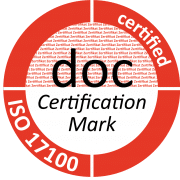The Risks of Inaccurate Translation in HR and Corporate Communications
In the realm of Human Resources and Corporate Communications, the margin for error is scant. Misinterpretation of policies, procedural guidelines, and internal communications can lead to significant misunderstandings, employee dissatisfaction, and even legal repercussions. When messages are lost in translation, the integrity of the original communication is compromised, potentially resulting in a loss of trust and credibility amongst employees and stakeholders. An inaccurate translation in HR documents could misinform employees about their benefits and rights, while corporate miscommunication may lead to incorrect representation of the company’s vision and values across global markets.
Furthermore, the ripple effect of translation errors can extend to the public domain, affecting brand reputation and customer relations. In a world where companies are held to account for their internal culture and communication, accuracy is not just recommended; it is imperative for maintaining a positive corporate image and avoiding costly legal challenges.
Enhancing Global Compliance and Legal Safety through Professional Translation
Compliance with local and international laws is a cornerstone of global business operations. Professional translation services ensure that HR materials and corporate communications are not only linguistically accurate but also culturally appropriate and legally sound. Language Service Providers (LSPs) leverage their expertise to navigate the complex terrain of legal terminology and regulatory requirements across different jurisdictions. This meticulous attention to detail safeguards companies from unintentional non-compliance and the associated penalties.
Moreover, by using professional translators who are well-versed in the legal nuances of their native languages, businesses can confidently operate within the bounds of the law, ensuring that all communications are clear, precise, and uphold the highest standards of legal safety.
Building an Inclusive Workplace with Accurate Language Services
Diversity and inclusion are not just buzzwords; they are strategic imperatives for modern businesses. Accurate language services are a testament to a company’s commitment to creating an environment where all employees feel valued and heard. By providing HR materials and corporate communications that are precisely translated, businesses demonstrate respect for the cultural and linguistic backgrounds of their workforce.
This effort not only fosters a positive work environment but also enhances employee engagement and retention. When team members can access important information in their preferred language, it signals that their contribution is important and that they are integral to the company’s success.
Comparing In-House Translation vs. Language Service Providers: Efficiency and Accuracy
While some companies may consider handling translations internally, this approach often lacks the efficiency and accuracy provided by Language Service Providers. In-house staff may not have the requisite translation expertise or access to industry-specific terminologies, leading to inconsistencies and errors. On the other hand, LSPs bring a level of professionalism and specialized knowledge to the table that is hard to match. They utilize native speakers who are subject matter experts, ensuring that the translation is not only correct but also resonates with the intended audience.
Moreover, LSPs often have quality assurance processes in place to double-check the accuracy of translations, providing an additional layer of security and professionalism. The efficiency of outsourcing to an LSP is also evident in their ability to handle large volumes of work within tight deadlines, something that can challenge even the most dedicated in-house team.
Case Studies: Success Stories of Effective Translation in Corporate Settings
Real-world examples underscore the value of partnering with a Language Service Provider. Consider a global corporation that implemented an LSP’s services for translating their employee handbook into multiple languages. The result was a uniform understanding of company policies across its international workforce, leading to enhanced compliance and reduced risk of litigation. Another case involved a multinational enterprise that relied on accurate translation of corporate communications to successfully navigate a merger, ensuring that all employees, regardless of language, were kept informed and engaged during the transition.
These case studies exemplify how precision in translation not only mitigates potential risks but also plays a crucial role in the successful execution of corporate strategies and maintenance of a harmonious work environment.











